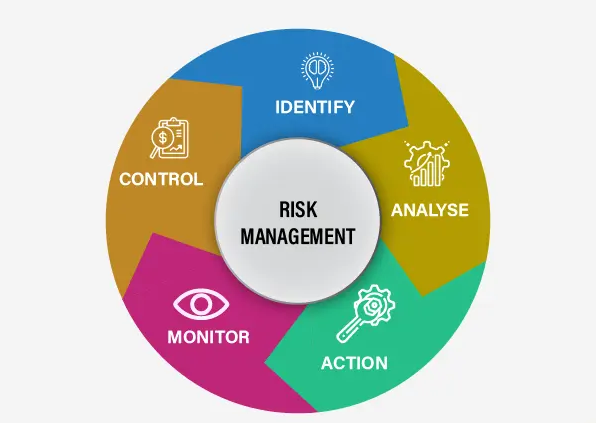In today’s fast-paced business environment, risk management planning is no longer optional; it is a necessity. Every business, whether small or large, faces uncertainties that can impact operations, profitability, and long-term sustainability. A proactive approach to identifying, assessing, and mitigating risks helps organizations stay resilient in the face of challenges.
This planning process is about more than just avoiding losses, it's about building a framework that enables businesses to make informed decisions, comply with regulations, and strengthen their future growth. Companies in highly competitive hubs like New York, NY especially benefit from a structured plan that prepares them to deal with financial, operational, and compliance risks effectively.
Why Risk Management Planning Matters
Risk can come in many forms: financial mismanagement, cyber threats, regulatory changes, or even economic downturns. Without proper planning, these risks can cause significant disruptions. Risk Management Planning ensures businesses have a roadmap to:
-
Identify potential threats before they escalate.
-
Analyze the likelihood and impact of those risks.
-
Develop strategies to mitigate or transfer risks.
-
Monitor outcomes to adapt to evolving challenges.
In short, effective planning transforms uncertainty into a manageable part of doing business, instead of a barrier to success.
Key Components of Effective Risk Management Planning
1. Risk Identification
The first step is understanding what risks could potentially affect your organization. These may include market competition, supply chain disruptions, financial fraud, or cybersecurity breaches. Creating a detailed list ensures no significant threat goes unnoticed.
2. Risk Assessment
Once identified, risks must be evaluated in terms of their likelihood and impact. A simple matrix (low, medium, high) helps prioritize which risks require immediate action.
3. Strategy Development
Businesses then decide how to respond: avoid, reduce, transfer (through insurance or outsourcing), or accept the risk if it poses minimal threat.
4. Implementation
Plans are only as good as their execution. Training employees, investing in technology, and establishing protocols ensure the strategy is effectively rolled out.
5. Monitoring and Review
The business landscape changes constantly. Continuous monitoring helps identify new risks and evaluate whether current strategies are still effective.
The Role of Culture in Risk Management
A strong corporate culture is the backbone of effective planning. Employees should feel responsible for identifying and reporting risks, not just top executives. Organizations that encourage transparency and accountability can prevent small issues from turning into large crises.
Benefits of a Proactive Risk Management Approach
-
Improved Decision-Making: Leaders can make confident choices when they understand potential risks.
-
Regulatory Compliance: A structured plan ensures businesses align with industry standards and laws.
-
Financial Stability: Planning minimizes unexpected financial losses and protects profitability.
-
Business Continuity: In the face of disruptions, companies can adapt and recover faster.
Risk Management in New York’s Business Environment
Businesses in New York, NY operate in one of the most dynamic and competitive markets in the world. The stakes are high, and so are the risks. From complex tax regulations to heightened cybersecurity threats, companies must remain vigilant.
Engaging with professionals who specialize in risk advisory ensures organizations are not just reacting to risks, but proactively preparing for them. For example, SALI CPA Professional Corporation New York, NY provides guidance that helps companies align with industry standards while building a resilient operational framework.
Industry Best Practices
-
Leverage Technology: Use data analytics and automation to detect irregular patterns that could signal risk.
-
Regular Training: Keep staff updated on compliance requirements and fraud-prevention techniques.
-
Collaboration with Experts: External consultants provide fresh insights and help businesses meet standards like compliance & audit obligations.
-
Scenario Analysis: Conduct simulations of potential risks (like cyberattacks or supply chain breakdowns) to evaluate readiness.
Building Resilience for the Future
The future of risk management lies in adaptability. Businesses that treat risk as an integral part of strategy, rather than a separate task, stand stronger in competitive markets. Organizations should embrace innovation while keeping controls in place to mitigate threats.
Risk planning is not about eliminating risks altogether, that is impossible. Instead, it is about creating a safety net that allows organizations to pursue growth opportunities with confidence.
Conclusion
Risk will always be a part of business. But with a thoughtful and structured risk management planning strategy, companies can turn uncertainties into opportunities. The businesses that invest in proactive planning today will be better positioned to weather tomorrow’s storms.
Whether you’re a startup or a large enterprise, seeking expert guidance is essential. Professionals specializing in risk advisory New York provide customized strategies that balance compliance, efficiency, and growth. Partnering with the right experts can transform your business into a resilient and future-ready organization.
FAQs
Q1: What is the main goal of Risk Management Planning?
The primary goal is to identify potential risks and implement strategies to minimize their impact while ensuring business continuity.
Q2: Is Risk Management only for large companies?
No, businesses of all sizes benefit from it. Small and medium-sized enterprises often face higher vulnerability, making planning even more critical.
Q3: How often should a business update its risk management plan?
At least annually, or whenever significant changes occur in operations, regulations, or market conditions.
Q4: How does Risk Management Planning relate to compliance?
It ensures businesses meet legal and industry requirements while minimizing risks tied to penalties or lawsuits.
Q5: Can external consultants help in building a risk management framework?
Yes, engaging experts in business risk consulting NYC or firms offering risk management services New York, NY provides deeper insights and tailored strategies.

Join our community to interact with posts!